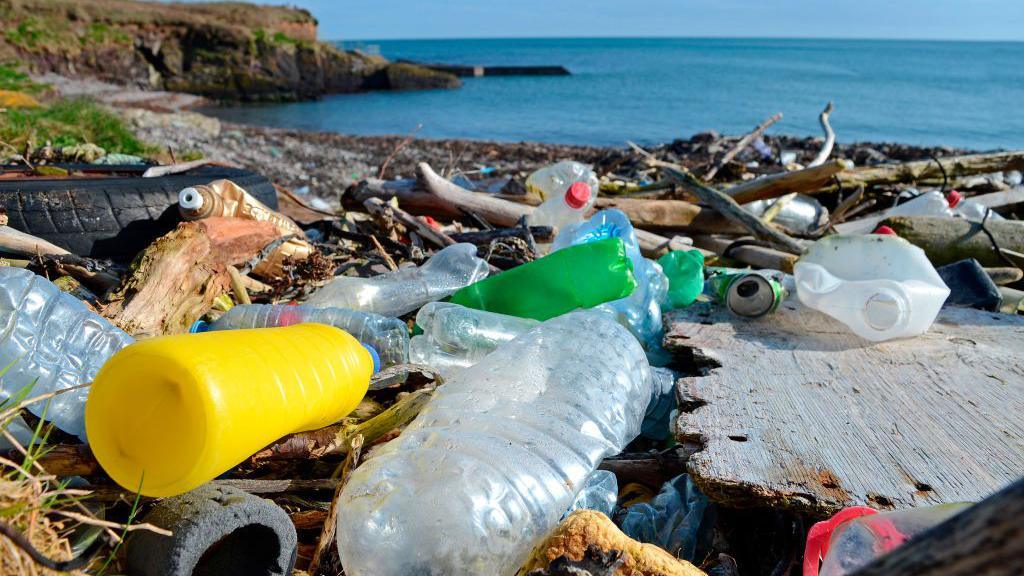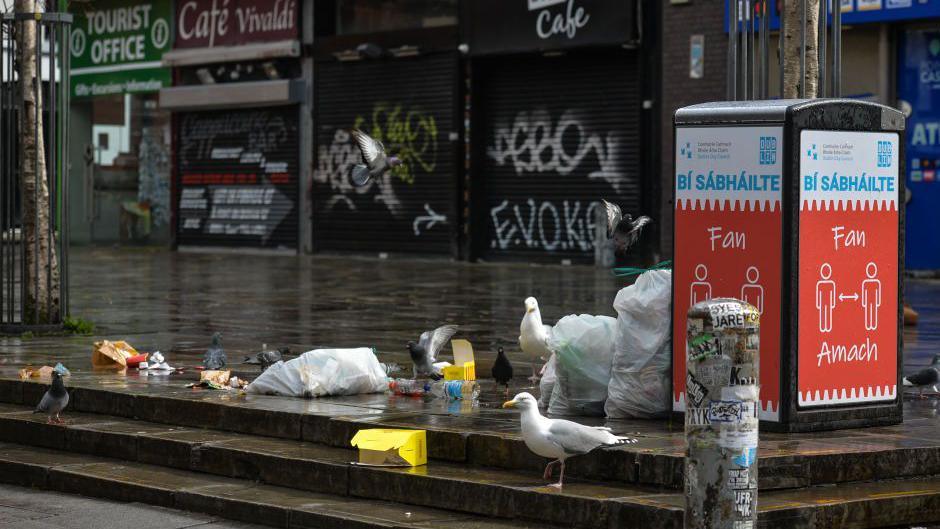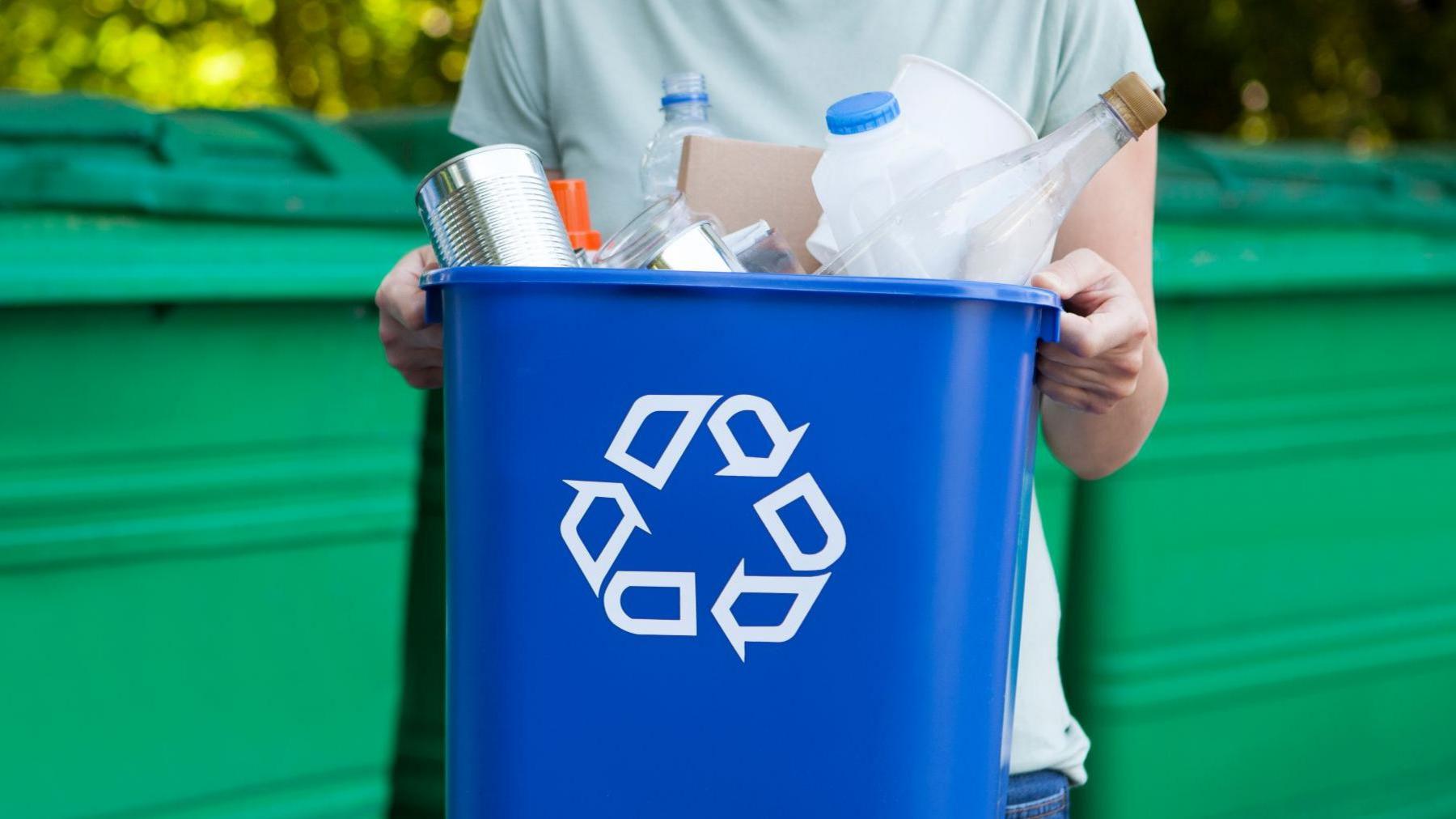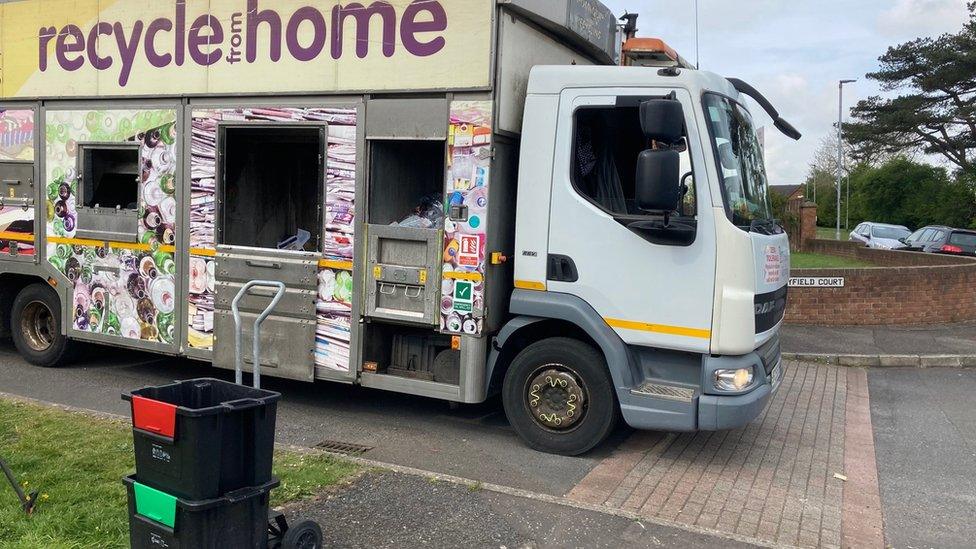Ireland's waste increases by more than 20% in past decade

Ireland's capacity to collect and treat waste is "vulnerable and underperforming", according to the Environmental Protection Agency
- Published
Ireland's recycling rate has stagnated in the past decade.
Over the same time, the amount of waste generated has increased by more than 20%.
The Environmental Protection Agency's (EPA) findings show Ireland is "now almost certain" to miss European Union targets on municipal and packaging recycling for 2025.
In its newly-published Circular Economy and Waste Statistics Highlights Report 2022, external, the EPA said half of all waste generated in Ireland came from the construction industry.
It also found Ireland's capacity to collect and treat waste is "vulnerable and underperforming", with 38% (1.2 million tonnes) of all municipal waste – which includes waste from households and similar waste from businesses – exported to other countries for treatment.
And while 41% of waste is recycled, that rate has remained static for several years.
There is a requirement to recycle 55% municipal waste by 2025.
Reuse and recovery of materials high

The 41% Irish recycling rate for 2022 compares to 49.7% in Northern Ireland in 2022/23
David Flynn, Director of the EPA, said the report showed progress towards a circular economy, where materials are kept in use for as long as possible through reuse, repair and repurposing before recycling, had stalled.
"Current measures to prevent waste, to promote reuse and to encourage recycling are not enough to meet mandatory municipal waste and plastic packaging targets.
"The challenge for Ireland is to reverse these trends and significantly reduce waste production and increase reuse and recycling.
"Strong implementation of existing policies and the introduction of new measures that support investment in new circular economy infrastructure will help move us away from a wasteful linear economy."
Reuse and recovery of materials were high in the construction sector (82%).
The sector has a target of recovering 70% of materials, mostly through back filling or land restoration.
'Deeper change' needed
The EPA's Circular Economy Programme Manager said high consumption of raw materials characterised the economy of Ireland.
"Deeper change is needed right across the economy to accelerate the transition to a more circular economy," said Warren Phelan.
"Effective regulation, incentives and enforcement are required to influence businesses and consumers to adopt best practices in production, supply, purchasing, use and reuse of goods, products and services."
The 41% Irish recycling rate for 2022 compares to 49.7% in Northern Ireland in 2022/23, external.
The findings of a consultation on increasing that rate through changing waste collections are due to be published in the coming year.
Related topics
- Published30 June 2024

- Published29 September 2022
